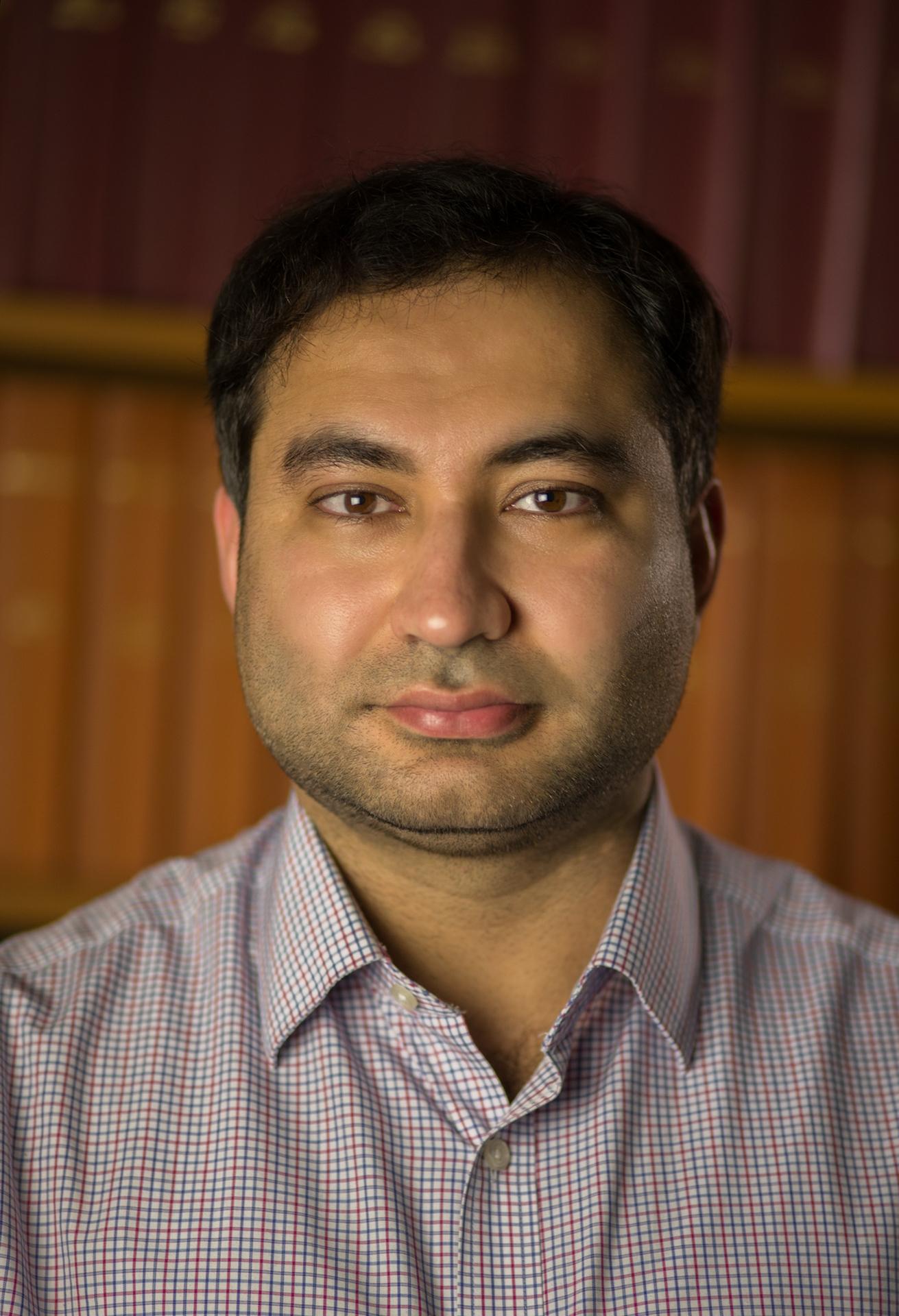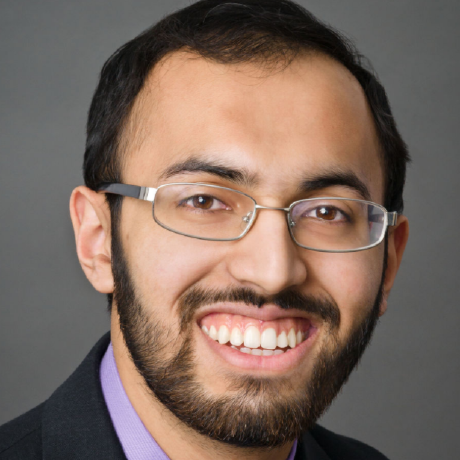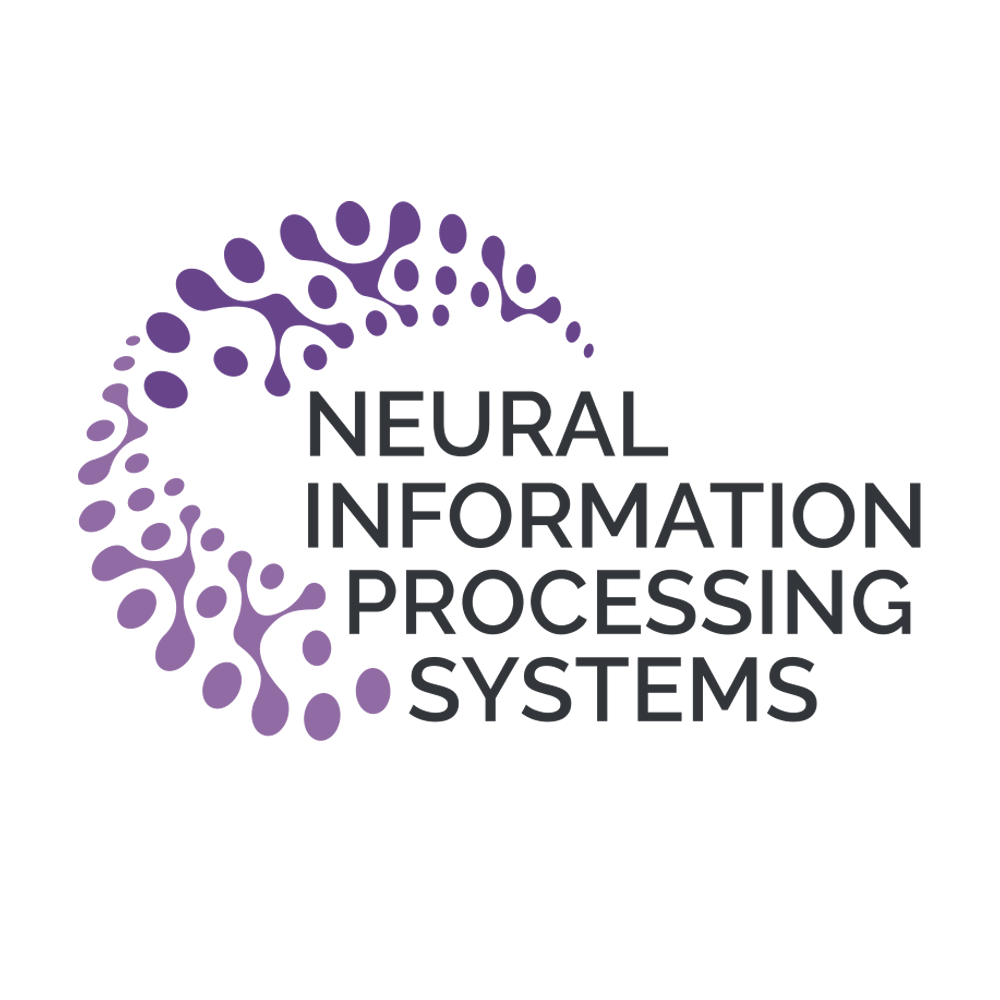The 5th Muslims in ML Workshop at NeurIPS'25
Muslims In ML (MusIML) is an affinity workshop dedicated to amplifying the voices of Muslim researchers in the fields of machine learning and artificial intelligence and addressing challenges and research topics that are particularly relevant to Muslims. We focus on both the potential for advancement and harm to Muslims and those in Muslim-majority countries who religiously identify, culturally associate, or are classified by proximity, as "Muslim". Our next workshop will be held at NeurIPS 2025. Check here for details.
Our Goals
The Muslims in ML Workshop aims to:
- Build a global network of Muslim researchers and professionals in ML.
- Promote research that addresses biases and challenges faced by Muslim communities.
- Provide mentorship and networking opportunities for researchers, particularly from Muslim-majority countries.
- Create space for discussions on ethical AI, inclusivity, and decolonizing AI research.
Our Mission and Vision
The MusIML workshop seeks to provide a platform for the machine learning community to engage in thoughtful discussions about the impact of artificial intelligence (AI) and machine learning (ML) technologies on Muslim individuals and communities. Our goal is to highlight both the opportunities for advancement and the risks of harm to those who identify with, are culturally connected to, or are categorized as Muslim. We aim to foster an inclusive environment where issues related to bias, ethical concerns, and representation in AI and ML can be addressed through research, collaboration, and advocacy. By bringing together academics, professionals, and practitioners, we strive to ensure that the benefits of ML extend equitably to Muslim communities while minimizing potential harms.
Our vision is to create a more equitable and just future where AI and ML technologies work to uplift Muslim communities, reduce societal biases, and foster innovation that respects and values cultural, religious, and ethical differences. We envision a world where Muslims and those in Muslim-majority regions are empowered to contribute to and benefit from advancements in machine learning. Through ongoing discussions, research, and collaborations, we aspire to create positive change by addressing systemic challenges in technology, enhancing inclusion, and advocating for fair representation of Muslims in the ML field.
Call for Papers: MusiML@NeurIPS2025
We are pleased to announce the 5th Muslims in Machine Learning (MusIML) Workshop, which will take place at NeurIPS 2025 on Tuesday December 2nd, 2025, in San Diego Convention Center, San Diego, USA. This workshop aims to amplify the development and use of machine learning (ML) in Muslim communities including Muslim-majority countries and strategies for global societal impact through AI and ML.
Workshop Overview
The MusIML workshop serves as a platform for researchers and practitioners to explore the intersection of machine learning, AI, and Muslim communities. Our mission is to promote high-quality research that not only fosters growth within Muslim communities but also advances strategies to improve fairness, inclusion, and ethical AI. We encourage contributions that address these challenges and highlight how ML can be a tool for positive change, especially for Muslims in both Muslim-majority countries and global communities.
Workshop Tracks
Track 1: ML research addressing challenges faced by Muslim communities and research related to Islamic contexts
This track is open to all researchers, regardless of religious or ethnic background, and encourages submissions that promote the use of ML to support and empower Muslim communities globally, including in Muslim-majority countries. Published and/or In-progress work is welcome. Areas of interest include but are not limited to:
- Growth of Muslims in ML: Initiatives that expand educational and professional opportunities for Muslims in ML, promote access, and encourage representation in the field.
- ML for Social Good: Using ML/AI to engage Muslim youth, promote community outreach, enhance societal well-being, and improve governance, healthcare, or education in Muslim communities.
- Language and Speech Technologies: Advancements in tools for languages spoken in Muslim communities, such as Arabic, Urdu, and Persian.
- Computational Analysis of Islamic Scriptures: Digital humanities research, including computational studies of Hadith or Quranic texts.
- Data Collection and Representation: Rich datasets from diverse Muslim communities.
- Mitigating Algorithmic Bias and Discrimination: Research exploring strategies that mitigate algorithmic bias and related topics that impact Muslim individuals and communities.
Track 2: Machine learning research by Muslim authors
This track invites submissions from researchers who self-identify as Muslim. Published and/or In-progress work is welcome. We encourage work that explores the frontiers of machine learning and AI, including but not limited to:
- LLMs, MLLMs, Generative AI: Research focused on large language models, generative AI systems, cutting-edge vision models, self-supervised learning, and advancements in multilingual capabilities, especially for languages spoken by Muslim communities.
- Applications of ML: In vision, language, speech, and audio.
- Machine Learning for Society: For example, in education, health, climate, and social sciences.
- Probabilistic Methods: Deep learning, reinforcement learning, and optimization.
- Social and Economic Aspects of ML: Fairness, interpretability, human-AI interaction, privacy, safety, and strategic behavior.
- Federated Learning and AI-driven Innovations: For healthcare and smart cities and public services such as governance, energy, and traffic management.
- Evaluation Methodologies and Scalable Infrastructures
- Robotics and NeuroAI: Including research at the intersection of neuroscience, AI, and cognitive science.
- AI Ethics and Safety: Data privacy, interpretable AI, green AI, red teaming in AI, etc.
Track 3: Machine learning competition proposals for social impact in Muslim communities
This track invites proposals for machine learning competitions that address challenges relevant to Muslim communities worldwide. Submissions should outline a competition concept that promotes fairness, inclusivity, and responsible AI, and may focus on areas such as equitable healthcare access, culturally aware NLP tasks, or AI for social good in Muslim-majority regions.
Submission Guidelines
Tracks 1 and 2
We invite submissions of short papers (up to four pages) including all figures and tables but excluding references in PDF format. An optional appendix can be included. The appendix will not be considered in the review process. Papers may have been previously published or be under review elsewhere. To prepare your submission for Track 1 and 2, please use the LaTeX style files for NeurIPS 2025: NeurIPS 2025 LaTeX style file. All submissions must follow NeurIPS Author Guidelines. Submissions must be anonymized, please refrain from including personally identifiable information. Submissions will be reviewed in a double-blind setting. All Track 1 and 2 submissions will be peer-reviewed through OpenReview.
Accepted papers will be showcased in a poster session, and selected authors will present lightning talks. Participants will also have the chance to contribute in a joint poster session with other NeurIPS affinity groups. Best Paper Awards will be given to the paper that shows societal impact.
Track 3
Competition proposals must describe the problem statement, dataset considerations (including ethical sourcing), evaluation criteria, and potential positive impact. Selected competitions may be featured as part of the workshop program or developed in collaboration with MusIML partners following NeurIPS. Here are some guidelines for the competition proposal: MusiML-SharedTask Template. Please make a copy and work on that. All Track 3 submissions should be submitted through OpenReview, selecting the track while submitting.
Important Dates
- Initiate call for papers: July 20, 2025
- Visa-friendly submission deadline: August 22, 2025
- Visa-friendly notification of decision: August 31, 2025
- Regular submission deadline: September 15, 2025 (extended to September 20, 2025)
- Regular notification of decision: September 30, 2025
- Camera Ready submission: October 14, 2025
- Workshop: December 2, 2025
*Visa-friendly submission refers to an earlier submission option that allows authors to receive decisions sooner, more suitable for anyone who plans to attend physically if their paper accepted and does not already have a visa. *Regular submission refers to the standard submission timeline with later deadlines, more suitable for anyone who plans to join virtually or already has a visa. *All dates are in AoE (Anywhere on Earth, UTC−12) time.
Submission Platform
All submissions will be managed through OpenReview.
Workshop Goals
- Build a global network of Muslim researchers and professionals in ML.
- Promote research that addresses biases and challenges faced by Muslim communities.
- Provide mentorship and networking opportunities for researchers, particularly from Muslim-majority countries.
- Create space for discussions on ethical AI, inclusivity, and decolonizing AI research.
Program Details
Registration
The NeurIPS workshop registration, as listed on neurips.cc, would be needed. Coverage of the registration fee for the NeurIPS workshops or conference may be offered for one author of an accepted paper based on availability (closed now!).
Schedule
Our workshop will host a mix of invited talks, contributed posters, and discussion sessions (tentative schedule below). Local date: December 2, 2025 (Tuesday).
| Time (Wed) | Event | Speaker | Type |
|---|---|---|---|
| 1:00 p.m. - 1:10 p.m. | Registration | Registration | |
| 1:05 p.m. - 1:30 p.m. | Opening Remarks | Gasser Elbanna | Opening Remarks |
| 1:30 p.m. - 2:00 p.m. | Invited Talk 1: Abdelrahman Mahmoud | Abdelrahman Mahmoud (Assistant Professor at MBZUAI) | Invited talk |
| 2:00 p.m. - 2:30 p.m. | Invited Talk 2: Mohamed Rayan Barhdadi | Mohamed Rayan Barhdadi (Student and Researcher at Texas A&M University) | Invited talk |
| 2:30 p.m. - 2:50 p.m. | Lightning Talks | Lightning talks | |
| 2:50 p.m. - 3:20 p.m. | Invited Talk 3 | Nazneen Rajani (CEO at Collinear AI, former Research Lead at Hugging Face) | Invited talk |
| 3:20 p.m. - 3:30 p.m. | Industry Partner Talk: Google | Industry Talk | |
| 3:30 p.m. - 4:30 p.m. | Internal Poster Presentation | Poster | |
| 4:30 p.m. - 5:30 p.m. | Panel Discussion: AI in Academia & Industry — Thinking past hype | Panel Guests: Ahmad Rushdi, Syed Ahmer Shah, Dr. Abubakar Abid, and Nazneen Rajani Panel Moderators: Ehsaneddin Asghari and Mansur Ali Khan | Panel |
Panel Speakers
Our 2025 workshop will include panel discussions from engaging speakers:

Ahmad Rushdi Director of Industry Programs, Stanford Human-Centered Artificial Intelligence (HAI) Institute Ahmad A. Rushdi, PhD, is the director of HAI industry programs—research collaborations and executive education—at Stanford’s Institute for Human-Centered AI (HAI), translating cutting-edge research into responsible, deployable solutions for global enterprises. He forges durable bridges between Stanford scholars and industry to advance trustworthy, real-world AI. Ahmad's own research focuses on uncertainty quantification and statistical signal processing for AI/ML systems. Previously, he held R&D roles at Sandia National Labs, Northrop Grumman, UC Davis, UT Austin, and Cisco. He earned a PhD in Electrical & Computer Engineering from UC Davis and MS/BS degrees in Electrical Engineering from Cairo University.

Syed Ahmar Shah Senior Research Fellow (Associate Professor), University of Edinburgh and Director of Innovation, Usher Institute Syed Ahmar Shah is a Senior Research Fellow (Associate Professor) in a tenured academic post at the University of Edinburgh and serves as the Director of Innovation at the Usher Institute. He has co-authored more than 100 peer-reviewed publications across outlets such as The Lancet, Brain, BMJ Open, Thorax, IEEE Transactions, JMIR, and JACI. He holds a DPhil and an MSc in Biomedical Engineering from the University of Oxford. His work spans intelligent algorithm development with a focus on signal processing and machine learning, large-scale analysis of electronic health records for chronic respiratory conditions including COPD and asthma, and digital health system development. He leads the DIME group (Data-driven Innovation in MEdicine) within the Usher Institute at the Edinburgh Medical School.

Abubakar Abid Head of Applications at Hugging Face Abubakar Abid is a senior machine learning engineer and team lead at Hugging Face. He founded Gradio, a platform for building machine learning applications now used by over 500,000 monthly users and acquired by Hugging Face. He is a Paul & Daisy Soros Fellow recognized for his innovative research in AI applications in healthcare and education and serves as a mentor in the Fatima Fellowship. Abubakar holds a Ph.D. from Stanford University.

Nazneen Rajani CEO at Collinear AI, former Research Lead at Hugging Face Nazneen Rajani is the CEO of Collinear AI, where she leads the development of systems for frontier model training and specialized reward models. She previously served as a Research Lead at Hugging Face, directing work on Zephyr and contributing to the Alignment Handbook. Before that, she was a Research Scientist at Salesforce, guiding research on explainability, safety, and evaluation for language models. Her earlier experience includes research roles at UT Austin and IBM Watson. She holds a PhD and an MSc in Computer Science from the University of Texas at Austin and was selected for MIT Technology Review’s Innovators Under 35. She also serves on the United Nations’ AI Advisory Body.
Invited Talk: Speakers
Our 2025 workshop will include keynote addresses from engaging speakers:

Abdulrahman Mahmoud Assistant Professor of Computer Science at the Mohamed Bin Zayed University of AI (MBZUAI) Abdulrahman Mahmoud is an assistant professor of Computer Science at the Mohamed Bin Zayed University of AI in Abu Dhabi, focusing on computer architecture, software system design, and machine learning. His work aims to co-design machine learning systems for measurable gains in performance, reliability, and resource allocation efficiency. Before joining MBZUAI, he was a postdoctoral researcher at Harvard University in the Architecture, Circuits, and Compilers Group with David Brooks and Gu Yeon Wei. He completed his PhD at UIUC under Sarita Adve and received the Mavis Future Faculty Fellowship along with several teaching and mentoring awards. He holds a BSE from Princeton University, where he received the John Ogden Bigelow Jr. Prize in Electrical Engineering. He also serves on the steering committees of the Computer Architecture Student Association and the Computer Architecture Long-term Mentoring initiatives.

Nazneen Rajani CEO at Collinear AI, former Research Lead at Hugging Face Nazneen Rajani is the CEO of Collinear AI, where she leads the development of systems for frontier model training and specialized reward models. She previously served as a Research Lead at Hugging Face, directing work on Zephyr and contributing to the Alignment Handbook. Before that, she was a Research Scientist at Salesforce, guiding research on explainability, safety, and evaluation for language models. Her earlier experience includes research roles at UT Austin and IBM Watson. She holds a PhD and an MSc in Computer Science from the University of Texas at Austin and was selected for MIT Technology Review’s Innovators Under 35. She also serves on the United Nations’ AI Advisory Body.

Mohamed Rayan Barhdadi Student and Researcher at Texas A&M University Mohamed Rayan Barhdadi is a third-year Electrical Engineering student at Texas A&M University with a minor in Mathematics. He conducts research in machine learning and computer vision, with published work at ICML 2025 and NeurIPS 2025. His projects include PhysicsNeRF, a physics-guided neural rendering framework for sparse-view 3D reconstruction, and EMPATHIA, a multi-agent system designed to support ethical and transparent decision processes for refugee integration. He works as a Student Researcher at the Kurban Intelligence Lab and collaborates with faculty on AI for social impact, neural rendering, and clustering methods.
Organizing Team
Join Us
We welcome all researchers— irrespective of their religious/ethnic background —to submit their work and contribute to the development and application of ML in Muslims Countries and Muslim Communities globally. For more information, please visit our community page. For any questions, email the organizers at: [email protected]. Also, sign up to [email protected] mailing list by filling out the form to follow updates about our workshop. Also, join Muslims in ML Slack group.

